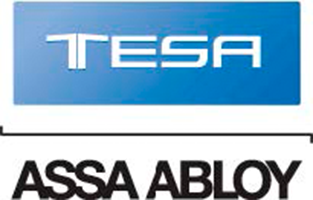So, I was thinking about how governance in blockchain often feels like a tedious chore. Seriously, who enjoys clicking through endless proposals without even knowing if their vote counts? But Cosmos flips that script in subtle, kinda brilliant ways. Wow! The way this ecosystem handles governance voting alongside IBC transfers really caught my attention. It’s not just about staking and earning rewards — there’s a whole dynamic interplay that’s shaping how decentralized communities actually make decisions.
At first glance, voting might seem like a standard feature — nothing flashy. But then you realize that Cosmos’s approach is tightly woven with IBC (Inter-Blockchain Communication), giving users a hands-on role in cross-chain governance. Hmm… something felt off about many blockchain governance systems before. They often felt disconnected from user experience, too abstract. Cosmos, though, makes governance voting feel more like a living, breathing part of the ecosystem.
Here’s the thing: voting isn’t just a checkbox here; it’s an active, integral mechanism that influences everything from staking parameters to IBC transfer protocols. Initially, I thought governance was just a backend affair, but then I dove deeper. Actually, wait—let me rephrase that: it’s more of a frontline feature when paired with IBC, because the decisions you help make can directly impact how tokens move between chains.
Now, imagine you’re a staker in the Cosmos ecosystem. You’ve locked up your ATOM, but you’re not just passively watching. Your vote shapes upgrades, security parameters, and even the behavior of connected chains. On one hand, that sounds empowering. Though actually, it also demands a bit more attention from users, which can be a double-edged sword. Still, if you’re into decentralized governance, this is very very important stuff to get right.
Okay, so check this out — the keplr wallet fits naturally into this setup. It’s basically the go-to interface for most Cosmos users to handle staking, governance voting, and IBC transfers seamlessly. I’ve been using it for months, and honestly, it’s the smoothest experience out there for engaging with Cosmos’s governance without jumping through hoops.
IBC transfers themselves are a whole other beast. They enable tokens and data to flow between independent blockchains, which is pretty wild if you think about it. In the US, we’re used to apps that just talk to each other behind the scenes, but IBC makes that interoperability transparent and user-controlled. Really?
Yeah. This means, for example, you can stake your tokens on one chain and then move rewards or other assets across chains without custodians. It’s decentralized magic, but it’s also surprisingly complex under the hood — and Cosmos governance voting can impact how IBC evolves and adapts.
Initially, I assumed IBC was just a transfer protocol, but actually, it’s governed by community decisions that decide parameters like packet timeout, allowed channels, and fee structures. That’s why voting feels so crucial; it directly shapes the interoperability landscape. Without active governance participation, you might miss out on vital changes that influence your token movements and security.
Here’s what bugs me about some wallets that support Cosmos — they often make IBC transfers feel clunky or risky because the UX isn’t polished. That’s where the keplr wallet shines again. It bundles governance voting and IBC transfers in one neat package, making these complex operations feel straightforward. Plus, it’s got that US-friendly vibe — clean UI, clear prompts, and good documentation.
By the way, the keplr wallet isn’t just a tool; it’s almost like a personal assistant for stakers and voters. You get notifications about upcoming proposals, easy ways to delegate votes, and real-time updates on your IBC transfers’ status. I appreciate that level of engagement — it turns passive holding into active participation.

One subtlety I love: Cosmos governance proposals can come from anyone, not just validators. That opens doors for community members to pitch improvements or changes, which means your voice actually can influence the tech roadmap. But here’s the catch — if you’re not plugged in (and many casual users aren’t), those decisions might sail past without your input. It’s a bit like local politics, honestly. You gotta show up to make a difference.
And guess what? The keplr wallet nudges you to do just that. It’s like your neighborhood civic app but for blockchain. It reminds you when votes are live and explains proposals in plain English, which, trust me, is a relief given how cryptic blockchain governance can be. I’m biased, but this feature alone makes keplr a must-have for Cosmos users.
Staking, Voting, and IBC: A Balancing Act
Let me tell you about my experience juggling staking rewards and governance voting while managing IBC transfers. At first, I thought I could just delegate and forget — but no, it’s kinda more involved. Each proposal can affect transaction fees or staking parameters, which in turn affects your rewards and how you move tokens across chains. That interdependency is fascinating but also a little overwhelming.
So I found myself checking the Cosmos governance forums and proposal feeds more often than I planned. There’s a rhythm to it, like tuning into a local radio station for the latest community news. Sometimes the proposals are technical — like adjusting slashing parameters — and other times they’re about user experience improvements or new IBC features.
Interestingly, not all proposals get unanimous support. That’s where the real governance dynamics show up. You see debates, shifting alliances, and compromises. It’s messy but honest. I’m not 100% sure how all the voting power dynamics shake out in the long run, but the transparency is refreshing compared to other ecosystems.
IBC transfers add another layer. Imagine you’re sending tokens from Cosmos Hub to Osmosis or Juno chain — governance can influence how seamless or costly that process is. Packet timeouts, channel openings, and security upgrades all depend on community decisions. If a proposal passes to tighten security, your transfers might slow down a bit, but it’s for the greater good. Balancing speed, security, and cost is a constant tug-of-war.
That’s why having a reliable wallet like the keplr wallet is clutch. It shields you from most of the complexity, showing you only what you need and letting you execute votes or transfers with confidence. Plus, it supports multiple Cosmos-based chains within one interface, so you’re not hopping between apps. Really simplifies life.
Okay, quick tangent — I remember when I first tried IBC transfers, I was worried about potential loss or errors. There’s this natural hesitation, right? But with keplr’s confirmations and clear transaction status updates, that anxiety faded fast. It’s kinda like having a pilot guide you through your first cross-country flight instead of being tossed into the cockpit cold.
What’s Next for Cosmos Governance and IBC?
Looking ahead, I’m curious how governance voting will evolve as Cosmos scales. Some folks worry voter apathy might creep in, especially as proposals get more technical. Others think innovations like liquid democracy or delegated voting might shake things up. I don’t have the answers, but I’m watching closely.
The interplay between governance and IBC is also ripe for surprises. For example, if a major upgrade to IBC protocols requires swift community consensus, how quickly can Cosmos voters mobilize? And what role will wallets like keplr play in that? It’s an open question, but the infrastructure seems to be maturing fast enough to handle these challenges.
Here’s a final thought: using the Cosmos ecosystem effectively feels a bit like being part of a tight-knit town where everyone has a say. You’re not just a passive user; you’re a stakeholder, a voter, a communicator. That engagement is what makes governance voting and IBC transfers more than just features — they’re the fabric holding this whole decentralized community together.
If you want to dive in, I highly recommend checking out the keplr wallet. It’s where governance voting and IBC transfers become approachable and even kinda fun. At least, that’s been my experience so far.





